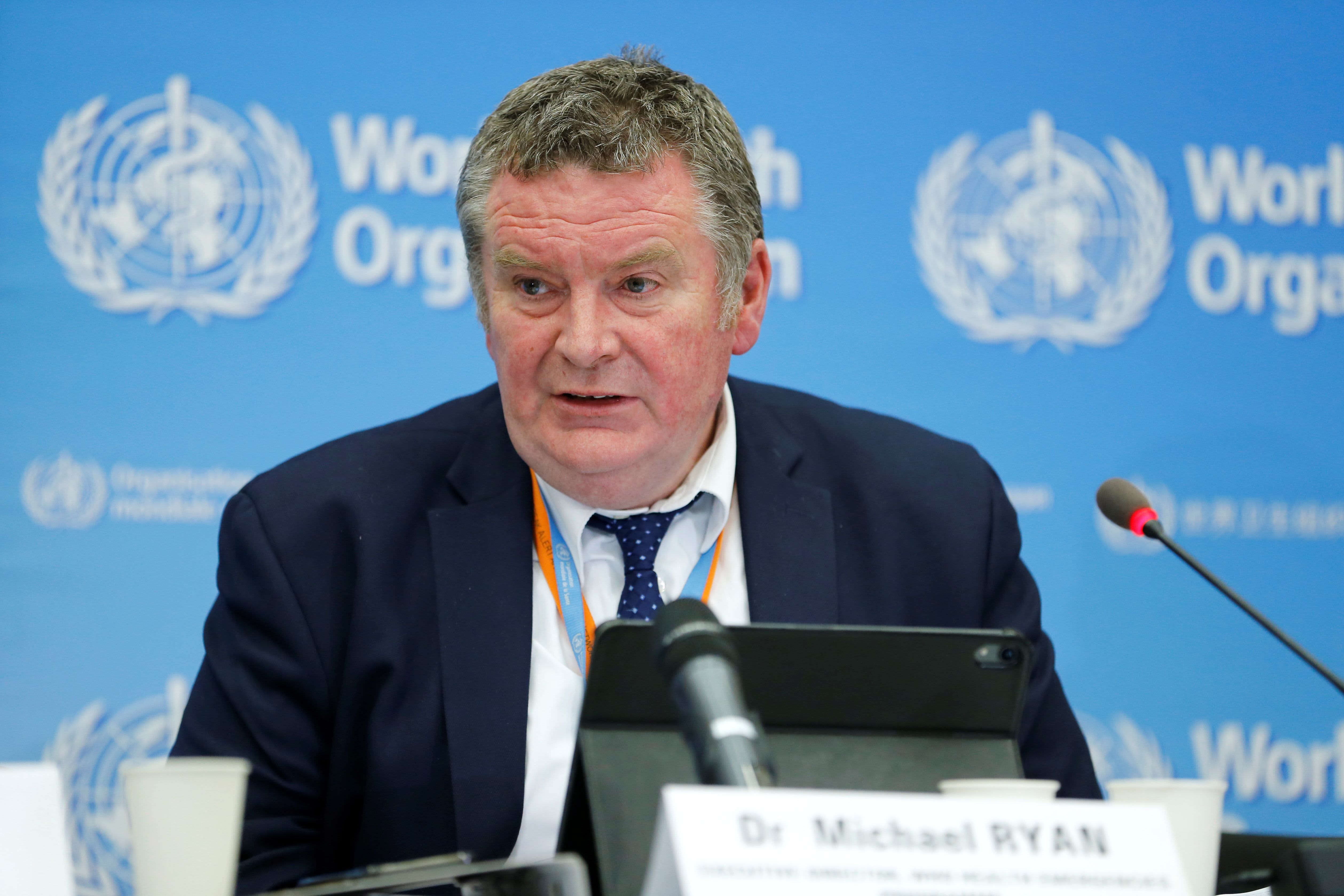
World Health Organization officials said Friday that it's "very unlikely" countries across the globe can eradicate the coronavirus and may need to reinstate some lockdown measure as clusters of cases quickly become outbreaks that spread like "a forest fire."
While some countries and island states have been effective in controlling the spread of the coronavirus, there's "always the risk" the disease can spread quickly when its imported from other countries, Dr. Mike Ryan, executive director of the WHO's health emergencies program, said at a news conference at the organization's Geneva headquarters Friday.
"In our current situation, it is very unlikely that we can eradicate or eliminate this virus," Ryan said. "We've seen countries that have managed to get to zero or almost zero re-import virus from outside, so there's always a risk."
The WHO has warned that the "once-in-a-century pandemic" has continued to accelerate and is not under control across most of the world. The organization is particularly concerned about "super-spreading events," which are large gatherings of people where the virus can transmit rapidly, Ryan said.
"It's very analogous to a forest fire," Ryan said. "A small fire is hard to see but easy to put out. A large fire is easy to see but very difficult to put out."
To douse the "small embers" of coronavirus cases, authorities must have proper surveillance methods, including contact tracing that isolates contacts of known positive cases, and aggressive testing to prevent small clusters from turning into large, uncontrollable outbreaks.
While the worst scenario would be to reimplement strict lockdown orders that have shuttered businesses and advised people to stay at home to prevent further spread of Covid-19, it might be the only tactic countries have to control outbreaks if a surveillance system isn't in place, he said.
World Health Organization (WHO) health emergencies programme Michael Ryan speaks during a press conference following an emergency committee meeting over the new SARS-like virus spreading in China and other nations, in Geneva on January 22, 2020.
Pierre Albouy | AFP | Getty Images
"Countries can and should be able to contain the disease through those measures. We all want to avoid whole countries going back into total lockdown, that is not a desire that anybody has" Ryan said.
Some countries have had success placing lockdown measures on specific, smaller regions rather than on the entire country to prevent outbreaks, Ryan said. In those cases, preventing the spread of the virus ultimately comes down to communities and individuals remaining vigilant and following guidelines from officials, he added.
"We need to remain vigilant with our physical distancing, with our hygiene, with mask wearing in the appropriate settings," Ryan said. "In that situation, we can potentially avoid the worst of having second peaks and of having to move backwards in terms of lockdown."
Dr. Maria Van Kerkhove, head of the WHO's emerging diseases and zoonosis unit, said it is possible these small outbreaks can be prevented into turning into large ones.
"Inform the communities often, regularly, honestly, thoroughly because the situation is evolving and we know how quickly these embers can really turn into these forest fires," she said. "With that hope, If restrictions need to be put in place, they're put in place temporarily."
"right" - Google News
July 11, 2020 at 12:57AM
https://ift.tt/3fuOoRn
WHO says it's 'very unlikely' countries can eradicate the coronavirus right now - CNBC
"right" - Google News
https://ift.tt/32Okh02
Bagikan Berita Ini














0 Response to "WHO says it's 'very unlikely' countries can eradicate the coronavirus right now - CNBC"
Post a Comment